“The Wolfpack” is a deeply fascinating documentary, a look at a family situation that is almost impossible to fathom, totally unbelievable if it weren’t for all the filmed evidence on display, a tiny social experiment gone awry, which resulted in a story that has to be seen to be believed. What happens when people are locked away from society for their whole lives? And what happens when those same people are taught about the world via thousands of movies? What does that do to someone? How does that change a person, make them in to what they are? And is that a good or bad thing? This is the essence of “The Wolfpack.”
The Angulo family lives in a four-bedroom apartment in a government housing building in the Lower East Side of Manhattan in New York City. And despite living deep in one of the liveliest and most vibrant cities in the world, the Angulos never left their home. The father Oscar was afraid to let his children and wife leave the apartment because he didn’t want anything bad to happen to them, so he obsessively locked everyone away in side the apartment, taking everyone out on only on supervised visits, and forbidding them to talk to anyone at all when they did manage to get outside. Some years would go by and the family would be lucky enough to get out of the apartment nine times, and once there was a year when the family didn’t make it outside at all. This is how Oscar Angulo raised his family, which consists of seven children, six of whom are brothers, all of them locked inside their small bit of public housing like a prison.
The brothers, mostly teenagers, spend much of their time watching movies, and they love movies so much that they get a little obsessive about them, to the point where they come up with homemade costumes and props so they could recreate scenes from their favorite movies. In this document, we get to see them remake scenes from “Pulp Fiction,” “Reservoir Dogs” and “The Dark Knight Rises” among a couple others and what is immediately apparent is the attention to detail and commitment to performance that the brothers give each recreation. In moments like these and others in which the brothers are playing around together and doing things together they actually seem quite joyful and happy, if a little strange from the denial of social development imposed on them by their father.
But what makes this documentary really fascinating is how the brothers actually talk extensively about what this imposed exile from the outside world has done to them and how it made them feel, and some of them get really deep into it, one even going so far as to talk about how the movies were the only thing keeping him sane and not suicidal for awhile there, and another brother talking about how much he has grown to hate his father and can’t even stand looking at him and can’t talk to him anymore. The fallout from this weird stay-at-home social experiment is actually quite brutal on some of these brothers, the older ones in their mid to late teens especially, as they have learned from movies about the big and exciting world out there and they want to become a part of it like they see in the movies.
So when they do start interacting more and more with the outside world slowly over time, it becomes apparent that maybe their outlooks were shaped by movies a little too much. Can it be a surprise that these brothers, whose favorite movies are Quentin Tarantino movies, liberally pepper their speech with the word “fuck?” And the oldest (?) brother occasionally speaks with a proper British accent at times, which is just strange because we know this comes from watching movies. Hell, the oldest brother talks about the first time he sneaked out of the apartment and walked around the neighborhood with a homemade Michael Myers “Halloween” mask and how the cops were eventually called because it IS a weird sight to see on a random day, and he admitted that by wearing the mask he felt like the unstoppable force that is Michael Myers and how he wondered if he might be impervious to bullets at that moment and that is a dangerous way to go about life, expecting the attributes of these fake worlds to carry over to this one very real world.
This actually says a lot about how people escape their reality by getting deep into something else, in this instance movies but also with books, comics, music, drinking, drugs, video games, anything that distracts from the real world and all its problems, and how we can’t just hide all the time from the Big Bad World, but instead we need to go out into it and face it. The mother of the children at one point talks about how she regrets how home-schooling the kids deprived them of the positive social interactions that come with going to school, but she also mentions how she remembers that there is a lot of negative social interaction at school as well, but we can’t do that as people living in a society, we can’t pick and choose which aspects of the world we deal with. It is all or nothing, we take the good with the bad and we find a way to maybe use the bad for something good, otherwise we just press on.
And press on is what the Angulo boys are doing, as they try to adapt to their brave new world and as they slowly learn what is real and what is from the movies. Some of them are young enough that they will have a better chance of readjusting than the older boys might have, but they are dealing with it nonetheless, and it is kind of amazing that the family would give such unfettered access to their world, foibles and all, and how much they were willing to reflect on all of it and what it all means to them. Fascinating and totally compelling, “The Wolfpack” is one of those truth is stranger than fiction stories, both entertaining and thought-provoking, pretty much everything you should want from a documentary.

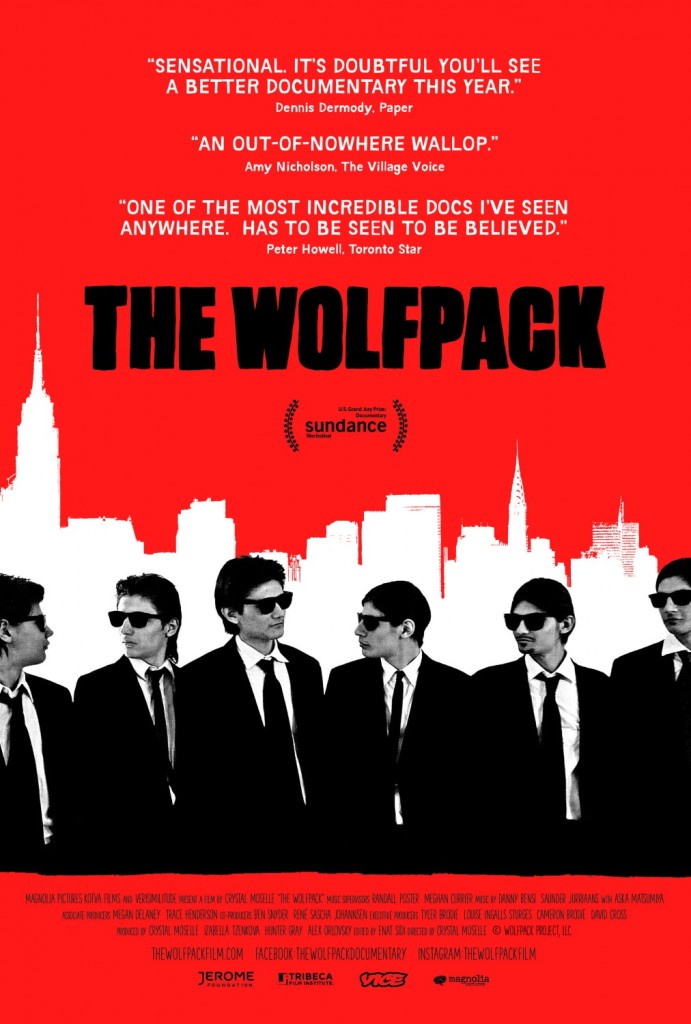
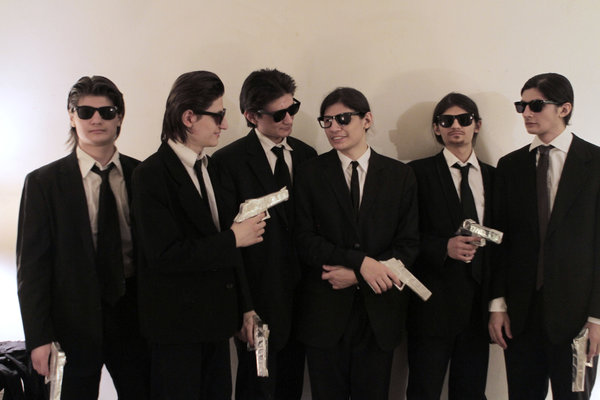
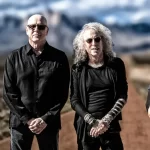 ‘Immediate Family’ – An Interview with Denny Tedesco
‘Immediate Family’ – An Interview with Denny Tedesco Bonus Episode – Oscars Recap 2015
Bonus Episode – Oscars Recap 2015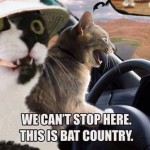 Book-to-film adaptations: 5 – ‘Fear and Loathing in Las Vegas’
Book-to-film adaptations: 5 – ‘Fear and Loathing in Las Vegas’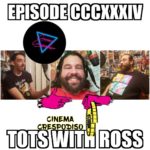 #334 – Tots With Ross
#334 – Tots With Ross
Leave a Reply
You must be logged in to post a comment.